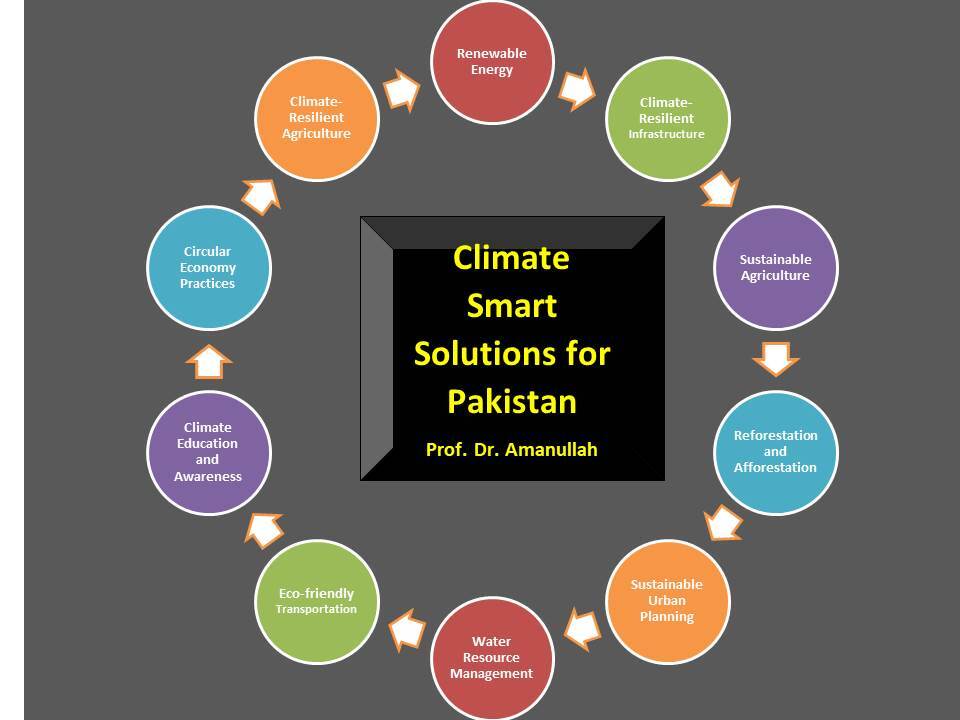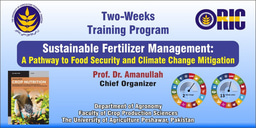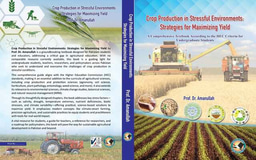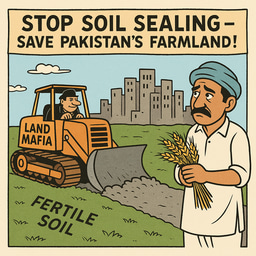Pakistan’s path to sustainability: Advancements in cleaner production, a circular economy, and climate-smart solutions
Published in Earth & Environment, Ecology & Evolution, and Sustainability

Introduction
As global environmental concerns reach new heights, nations across the world are being urged to rethink their development trajectories. Pakistan, a country facing complex environmental challenges, has started charting a strategic path toward sustainability. From rising greenhouse gas (GHG) emissions and rapid resource depletion to intensifying climate vulnerabilities, the country is confronted with a range of issues that threaten long-term economic growth and societal well-being.
However, these challenges have also opened up avenues for transformation. A growing national emphasis on cleaner production, circular economy principles, and climate-smart solutions is shaping Pakistan’s journey toward a greener, more resilient future. These approaches are not only environmentally imperative but are also critical to achieving sustainable development goals, enhancing resource efficiency, and creating inclusive economic opportunities.
Cleaner Production: Greening the Industrial Backbone
Pakistan’s industrial sector, particularly textile, cement, tanneries, and manufacturing, forms a vital part of the national economy. However, these sectors are also significant contributors to environmental degradation, including air and water pollution and energy overuse.
To address these concerns, the government and private sector are increasingly investing in cleaner production (CP) technologies. Cleaner production is a preventive, integrated strategy aimed at minimizing waste generation at the source rather than relying solely on end-of-pipe treatments. This includes:
-
Energy-efficient equipment and process optimization,
-
Low-emission technologies to reduce air pollutants,
-
Water recycling and reuse systems,
-
And waste-to-energy innovations.
Organizations such as the Pakistan Cleaner Production Centre (PCPC) and provincial environmental protection agencies have taken active roles in supporting CP initiatives, providing technical assistance, training, and awareness campaigns for industries. International collaborations, including partnerships with the United Nations Industrial Development Organization (UNIDO), have further accelerated the transfer of clean technologies and capacity building.
The results are promising. Cleaner production practices not only reduce environmental footprints but also lead to cost savings, improved productivity, and compliance with international environmental standards—enhancing export competitiveness, especially in global markets that now demand sustainable supply chains.
Circular Economy: Closing the Loop
Parallel to cleaner production, Pakistan is gradually embracing the principles of the circular economy, which seeks to design out waste and keep resources in use for as long as possible. Unlike the traditional “take-make-dispose” model, the circular economy promotes a regenerative system that emphasizes reuse, recycling, repair, and remanufacturing.
In urban areas, the rising burden of solid waste has prompted innovative responses. Cities like Lahore and Karachi are piloting municipal solid waste management projects involving material recovery facilities and composting plants. Startups and social enterprises have emerged to collect and repurpose plastic waste, old textiles, and electronic scrap—transforming waste into valuable resources.
In the agriculture sector, which remains the backbone of Pakistan's rural economy, circularity is being pursued through organic composting, bioenergy generation from crop residues, and water reuse. These methods reduce input costs for farmers, improve soil health, and mitigate the environmental damage caused by burning agricultural residues.
However, scaling up circular economy practices requires overcoming systemic challenges such as limited recycling infrastructure, informal waste management systems, and lack of consumer awareness. To tackle these barriers, the government is working on regulatory frameworks, such as Extended Producer Responsibility (EPR) policies, that make producers responsible for the entire lifecycle of their products.
Climate-Smart Solutions: Building Resilience in a Warming World
Perhaps the most urgent dimension of Pakistan’s sustainability agenda lies in climate adaptation and mitigation. Ranked among the top 10 countries most vulnerable to climate change, Pakistan is experiencing rising temperatures, glacial melt, unpredictable monsoons, and frequent extreme weather events, as witnessed during the devastating 2022 floods.
To enhance resilience, climate-smart solutions are being mainstreamed across sectors:
-
Climate-Smart Agriculture (CSA):
Programs promoting drought-resistant seed varieties, water-efficient irrigation (like drip and sprinkler systems), and integrated pest management are helping farmers adapt to shifting weather patterns. Moreover, soil carbon sequestration, agroforestry, and organic farming are being promoted to reduce emissions from conventional farming. -
Urban Resilience and Green Infrastructure:
In cities, urban planning now increasingly incorporates green spaces, sustainable drainage systems, and energy-efficient housing. Initiatives like "10 Billion Tree Tsunami", Clean Green Pakistan Movement, and climate-resilient infrastructure projects show political will to confront environmental degradation. -
Renewable Energy Transition:
With rising energy demands and heavy reliance on fossil fuels, Pakistan is expanding its solar, wind, and hydroelectric capacity. Policies such as the Alternative and Renewable Energy Policy 2019 aim to increase the share of renewables in the national energy mix to 30% by 2030, which will significantly reduce GHG emissions.
Role of Stakeholders: Government, Industry, and Civil Society
Pakistan’s sustainability efforts are being shaped by a multi-stakeholder approach. The government has enacted climate policies and national development frameworks aligned with the UN Sustainable Development Goals (SDGs) and the Paris Agreement. Initiatives like the National Climate Change Policy, National Energy Efficiency and Conservation Act, and Pakistan Vision 2025 have sustainability at their core.
Meanwhile, private sector companies are beginning to integrate Environmental, Social, and Governance (ESG) principles into business models, driven by investor demand and global market expectations. Corporate sustainability reporting, green certifications, and eco-labeling are gaining traction.
Equally important is the role of civil society and academia in spreading awareness, conducting research, and piloting innovative projects. Educational institutions are introducing sustainability into curricula, while NGOs are engaging communities in eco-friendly practices and local climate adaptation.
Follow the Topic
What are SDG Topics?
An introduction to Sustainable Development Goals (SDGs) Topics and their role in highlighting sustainable development research.
Continue reading announcement




